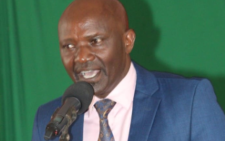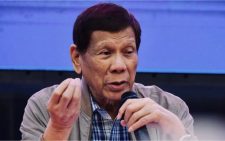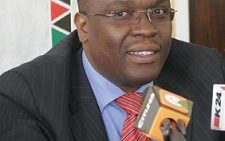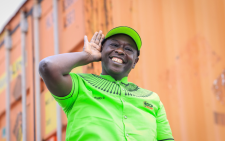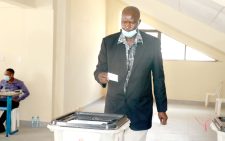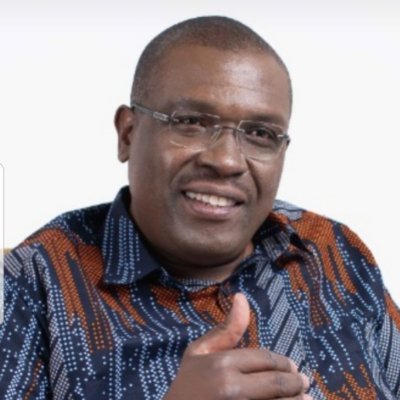ICC drops PEV crimes against humanity case against Ruto
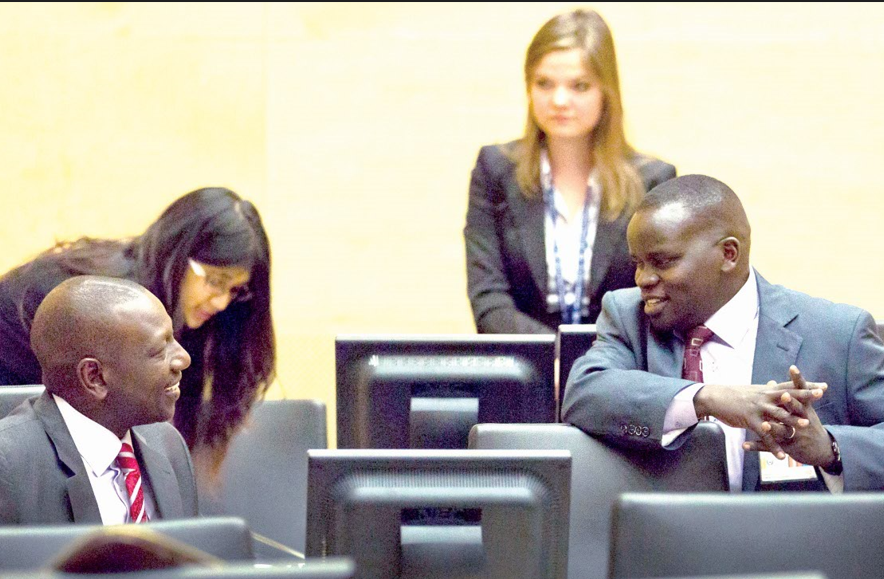
The International Criminal Court (ICC) based in The Hague yesterday announced that it has concluded its investigations in cases facing President William Ruto who was charged with crimes against humanity in connection with the 2007 post-election violence.
Ruto was a Member of Parliament at the time and was charged alongside five other suspects. He had been charged alongside Henry Kosgey, also an MP at the time, and radio journalist Joshua arap Sang. Also charged from the government side were Uhuru Kenyatta, the then Leader of Official Opposition but had supported the re-election of President Mwai Kibaki, Police boss Hussein Ali and Head of the Civil Service Francis Muthaura.
The cases against all five were dropped for lack of evidence but Ruto’s remained active until yesterday.
In a statement sent to People Daily, ICC Deputy prosecutor Nazhat Shameem Khan stated that she had reached the decision to terminate the case against Ruto after assessing the information available to her.
She took over the matter after Chief Prosecutor Karim Khan recused himself from the case. Khan had been one of Ruto’s lawyers when the case was active and before he was appointed ICC prosecutor. He recused himself in 2021.
“After assessing all the information available to me at this time, I have decided to conclude the investigation phase in the situation in Kenya,” Prosecutor Shameem said.
“I have reached this decision after considering the specific facts and circumstances of this situation. Accordingly, the Office will not pursue additional cases into the alleged criminal responsibility of other persons.”
Forceful displacement
Ruto, like the other suspects, had been accused of forceful displacement of populations among other crimes against humanity in connection with the post-election violence that claimed 1,100 lives and displaced 650,000, according to a report compiled by Justice Philip Waki, who has since died.
The violence started after the electoral commission chairman, Samuel Kivuitu, also deceased now, declared Kibaki winner of the 2007 presidential election. ODM, whose presidential candidate was Raila Odinga, disputed the results.
The post-election violence ended after President Kibaki and Raila signed a peace accord and Raila became Prime Minister. Uhuru was appointed Deputy Prime Minister and Ruto a Cabinet minister in the Grand Coalition government.
Sustain conviction
Ruto’s trial was halted after prosecutors finished presenting their case and Khan successfully argued that the evidence was not strong enough to sustain a conviction.
While rendering its decision yesterday, the International Criminal Court prosecutor pointed out that the cases against Walter Barasa and Philip Bett, currently at large, who were accused of tampering with witnesses, would remain active before the court.
“The Office maintains its capacity to act on information relating to retaliation against witnesses. In this regard, the cases against Barasa and Bett for offences against the administration of justice remain before the Court,” the statement said.
The Court further stated that while it would not pursue additional cases it still retained the authority to act on information relating to retaliation against witnesses.
Barasa and Bett were pursued by the court after investigations established that they had interfered with witnesses. President Ruto’s former lawyer, Paul Gicheru, had also been accused of tampering with witnesses.
Gicheru’s case was terminated after he died in September 2022 at his house in Karen, Nairobi.
